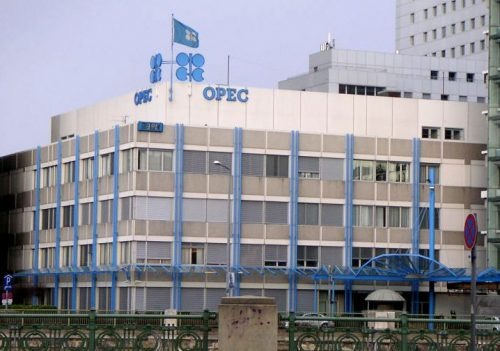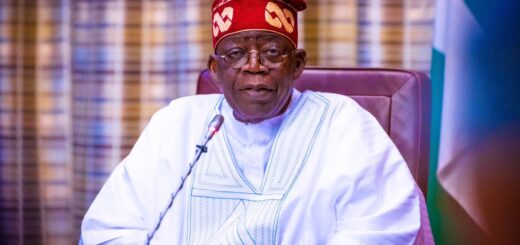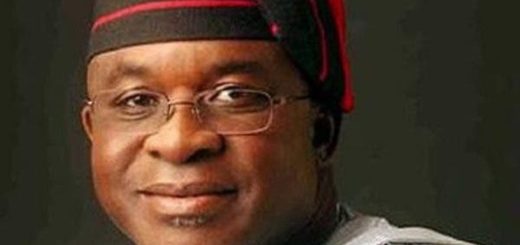Dangote, Mexico’s Dos Bocas refineries may upstage USA, Europe producers — OPEC
 THE Organisation of Petroleum Exporting Countries, OPEC, has said the take-off of Nigeria’s Dangote refinery in Nigeria and Dos Bocas refinery in Mexico would affect plants in the United States of America, USA, and Europe.
THE Organisation of Petroleum Exporting Countries, OPEC, has said the take-off of Nigeria’s Dangote refinery in Nigeria and Dos Bocas refinery in Mexico would affect plants in the United States of America, USA, and Europe.
Hitherto, the two countries in addition to other African countries, were the major markets for premium motor spirit (PMS), also known as petrol refined in USA and Europe.
Vanguard’s findings show that the Dos Bocas refinery can process about 340,000 barrels per day (bpd), thus making Mexico self-sufficient in refined petroleum products.
Dangote Oil Refinery can process 650,000 bpd, showing capacity to meet demands across Nigeria and West African markets.
In its latest 2024 World Oil Outlook 2050, OPEC, stated: “New mega-projects are poised to alter the international downstream market. For instance, the start-up of the Dangote refinery in Nigeria and the upcoming commercial start of the Dos Bocas refinery in Mexico could significantly affect the gasoline market in the Atlantic basin.
“Although both regions import significant volumes of gasoline from the international market, this could change when these two refineries reach full operation. This in turn could negatively affect refineries in the US and especially Europe, as gasoline markets in these regions are stagnating.”
Politics in trade dynamics
The report, however, stated that the downstream market and related trade dynamics are still strongly influenced by geopolitics, adding: “The EU embargo on Russian crude and product exports has altered interregional oil flows, with EU refiners increasing crude oil imports from regions such as the US and Middle East.
“EU product imports of non-Russian origin also increased, especially from India, the US and the Middle East. Recently commissioned plants in the Middle East have also started exporting diesel to the EU, including Jizan in Saudi Arabia and Duqm in Oman. Turning to broader downstream trends, global refinery throughputs have continued their growth.
Nigeria emerges key global player — Ayuk
Commenting on the OPEC report, the Executive Chairman, African Energy Chamber, NJ Ayuk, stated: “Nigeria is starting to emerge as a key player in the global trade of middle distillates and light ends.
“The Dangote refinery will soon rival the largest refining sites in the US and it is more than 50% larger than Europe’s biggest refinery.
“Refinery ramp-ups can be tricky, and there will be delays. But once the site starts operating at full capacity, it will transform fuel markets in the West African region and change trade flows in Europe. In other words, Nigerian refined products will soon be making its way into Northwest Europe, traditionally an exporter.
“Then there’s feedstock. Once Dangote refinery will be purchasing at full throttle, there will be less crude in the Atlantic basin, notably in Europe.”
Similarly, Wumi Iledare, Professor Emeritus in Petrleum Economics & Policy, Executive Director, Emmanuel Egbogah Foundation, said: “The 650,000 bpd may display export of products to the Gulf of Guinea countries if products are appropriately priced.”
Depots commence Dangote petrol lifting
Meanwhile, Vanguard learnt that Dangote petrol has started arriving at independent depots in Lagos.
Also checks by Vanguard yesterday indicated that major marketers, including 11 Plc, Total Energies and AA. Rano were still lifting petrol from Dangote to their retail outlets.
But Vanguard also learnt that independent retail marketers have not yet started to lift petrol directly from Dangote Refinery.
The Public Relations Officer, Independent Petroleum Marketers Association of Nigeria, IPMAN, Chief Chinedu Ukadike, who said that IPMAM members have remained hopeful about lifting from directly from Dangote refinery, stated: “There is a meeting scheduled for this week between Dangote and IPMAN. We are happy that Dangote has set on a new course in terms of looking to other stakeholders to distribute its products. It is now distributing to major marketers and we are hopeful that with time it will start distributing to independent marketers.
“For the refinery to also start distributing through the coastal areas with vessels is a good move. This will remove the ghost scarcity that has persisted for a long time. Once it takes off effectively, ghost scarcity will be gone”.
He added, “It is not yet at good price now but I must tell you that supply will determine price. Deregulation is all about competition and the factors of demand and supply will come to play. When the product is enough within the country, the price will reduce.”
Rights group accuses marketers of price manipulation
In a related development, Human Rights Writers Association of Nigeria (HURIWA) has accused fuel marketers in the Federal Capital Territory (FCT) of engaging in widespread price manipulation and altering metering devices.
In a press statement released by its National Coordinator, Comrade Emmanuel Onwubiko, HURIWA alleged that independent marketers, including those operating under the auspices of the Nigerian National Petroleum Company Limited (NNPCL), were deliberately manipulating prices and tampering with fuel pumps.
“We are deeply shocked that consumers in Abuja are being subjected to these unfair and reprehensible practices,” Onwubiko said.
The rights group highlighted that the manipulation was particularly prevalent at NNPCL-managed stations and even those located near government institutions like the Nigeria Police Force Headquarters and the Transcorp Hilton.
HURIWA expressed concern that these illegal activities were likely being supported by powerful individuals within the government and the corridors of power.
The group called on the Federal Competition and Consumer Protection Commission (FCCPC), in collaboration with the Directorate of State Services, DSS, the Nigeria Police Force, EFCC, and ICPC, to launch immediate investigations into the matter.
They urged the agencies to visit fuel stations in Abuja without notice to catch culprits in the act and take decisive action to protect consumers.
HURIWA emphasised that the sophisticated nature of the price manipulation and metering device alterations required swift intervention from enforcement agencies to curb unethical practices and ensure fair pricing for consumers in the FCT.













